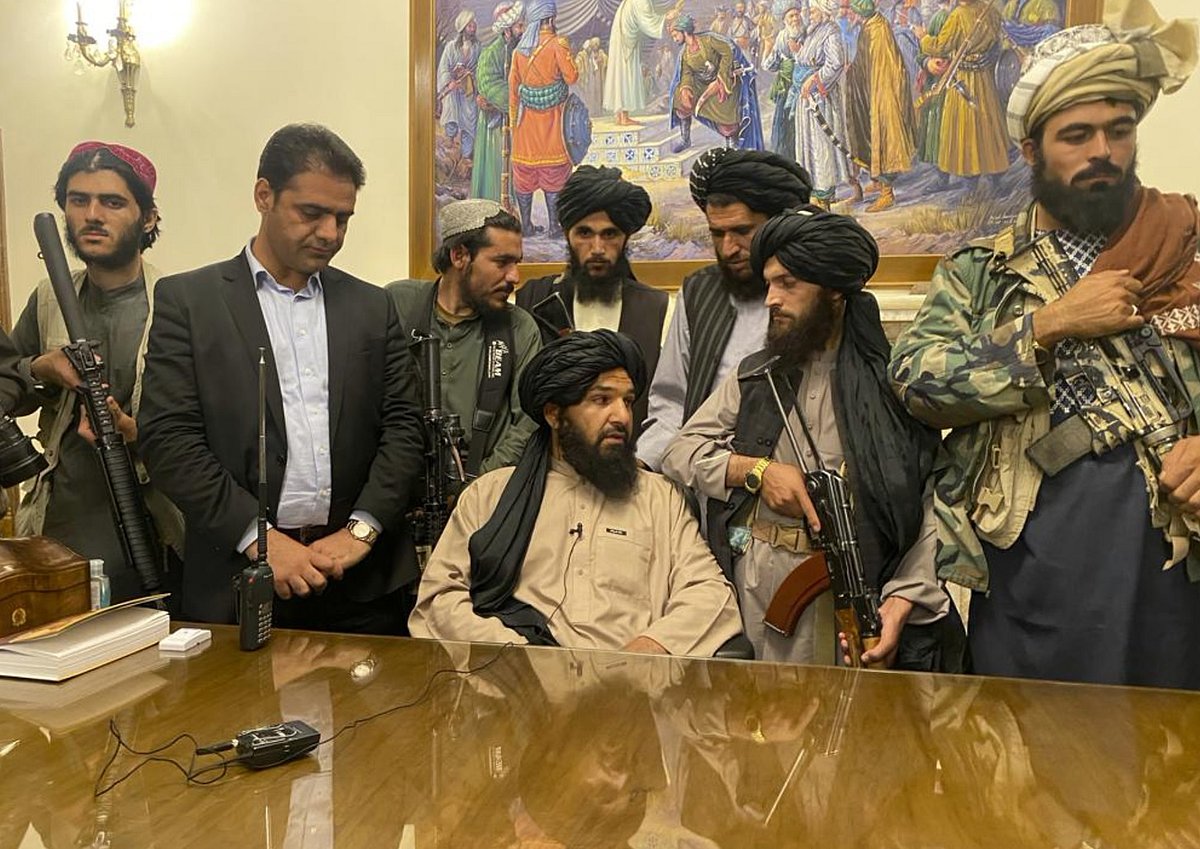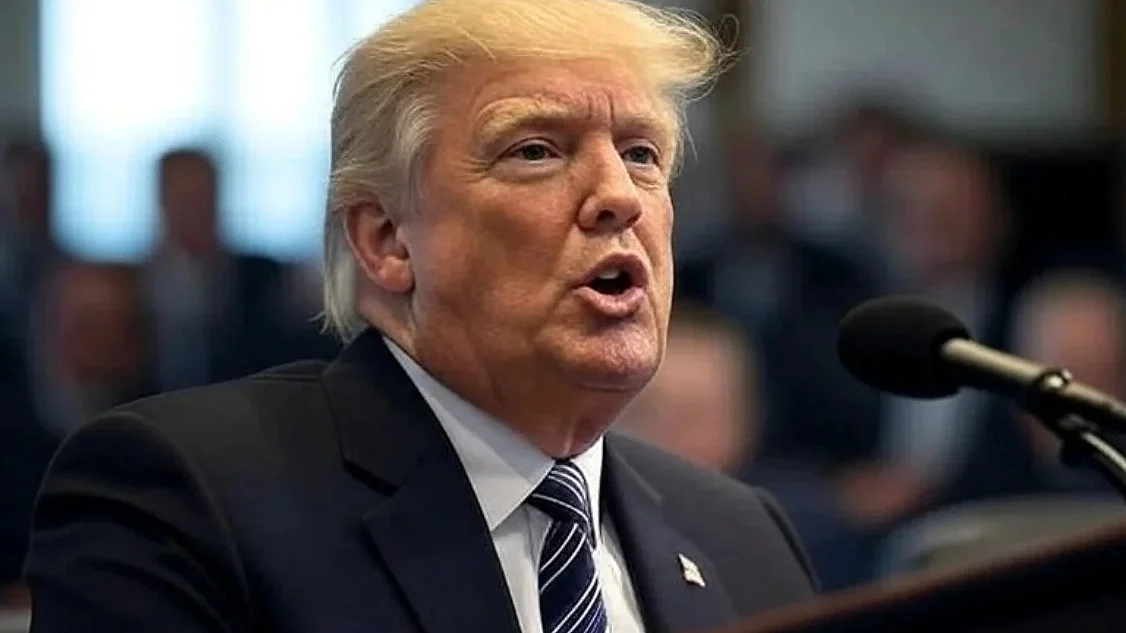The Taliban have laid open the wounds of modern-day world politics. We are seeing all that is wrong or evil about the present global power structure. Idea, idealism and ideology no longer define the fundamentals of international relationships; these are punctured and provoked by brutal national interests. Maybe it’s too early to say so but it must be said that world politics has once again been transported to pre-world-war times, when the balance of power was not decided by universal values but by the appetite of the emerging nations to acquire power and showcase their relative national strengths. Might was right and the world was a jungle.
A few years ago, ‘Taliban’ was a bad word. It was called a terrorist organisation. Taliban epitomised religious fanaticism, anti-modernity and was anti-progress. The Taliban wanted to take the world back to the dark ages where barbarism, and not moral values ruled. No power on earth wanted to have any truck with them; to support them was to be clubbed together with barbarism; supporting them implied support to blood-thirsty wolves who wanted to devour the modern civilisation and citizenry with their medieval thought process.
Moral crisis
Taliban was not about Islam but about a creed of Islam which was antagonistic to whatever was good within Islam; it was not about jihad but about human bombs. It was not about Islamic egalitarianism but about the total annihilation of women’s space in the public order. It was not about the justice system but about the whims of an illiterate mullah. It was not about politics but about the death of politics. It was the reflection of a moral crisis. Unfortunately, it seems that the same moral crisis has enveloped the entire global system today.
With the withdrawal of the American army from Kabul, the Taliban have acquired a makeover, with discussions about how they not the old Taliban, but the new Taliban. It is being advocated that the world can deal with this new beast. It is now expected that the new Taliban will be well-behaved boys who will listen to the world at large. I don’t know when and how this metamorphosis has happened. A few weeks ago, nobody was openly willing to give them the benefit of the doubt. But with the change of the power equation in Kabul, this new narrative has been woven by the global powers and they want the world civilisation to believe it too.
In 1996, when the Taliban captured power in Afghanistan, except for Saudi Arabia, the UAE and Pakistan, no country had recognised them. Today, the world has changed. Major powers are shamelessly in a queue to establish relations with the Taliban.
Angry ISIS
The Americans are out of Afghanistan after numerous rounds of talks with them. They have struck a deal with them, and it has been agreed upon that the terrorists of yesteryears will not harm US interests. It is one of the reasons that the more militant organisation, the ISIS, is angry and feeling betrayed. The ISIS is convinced that the Taliban has captured power with the connivance of the Americans. The recent suicide attack by the IS Khorasan at the Kabul airport in which more than a hundred have been killed, was indicative of that discord between the two.
America’s withdrawal has opened a new opportunity for the Chinese. They are happy that now their ambitious Belt and Road initiative will get a new boost and if all goes well, they will probably lay their hands on the lithium too, which is needed for the manufacturing of batteries for electric vehicles. Russia will leverage geo-political benefits vis a vis the US and Iran is happy that the American puppet government will be replaced by a political system based on the Sharia, which will further legitimise their Islamic republic. Pakistan is gung-ho that now its own creation will rule Kabul, which will help in their subversive activities against India.
Worries for India
Of course, India should be worried and it is also trying to establish some contact with the new rulers-to-be. No major power has said so far that it will ‘not recognise’ the Taliban. It shows how much world politics has changed since 2001 when the Taliban were ousted from power by the Americans.
There is no denying the fact that foreign policy is all about furthering one’s national interests. But since World War II, the international system has been guided by universal values. The promotion of democracy, non-infringement of sovereignty, human rights and disarmament were the guiding principles. The world believed that to avoid another world war, conflicts should be resolved within the ambit of the United Nations.
It is not that the world was not divided between two camps. The competition and the conflict between capitalism and communism brought the world to the brink of war many times. The Cuban crisis is an example of that. Both blocs tried their level best to enhance their sphere of power, by hook or by crook, but it was all done in the garb of global universal values. Both painted the other as the evil empire but on the surface, they made the world believe that their ambition was not a naked dance of power, but it was to preserve and protect certain moral values. Both projected themselves as the good policemen of the world. Both told the world that they were on the right side of history.
Religious fanaticism
With the demise of the Soviet Union, that system collapsed. The Cold War ended in chaos. It was replaced by the so-called clash of civilisations. In the absence of an alternative thought process, a section of the world slipped into religious fanaticism. Terrorism in the name of the Islam created havoc the world over. Wahhabism, which during the Cold War was promoted by the USA, of which Afghanistan was a victim, became a new nemesis for the world. Al Qaeda and other terror groups believed that their kind of Islam would bring back the old glory to the Muslim world. India also fell victim to that monstrosity. 9/11 was the result of that religious fanaticism.
Once America was directly affected by the new Frankenstein, it tried to build consensus between the developed and developing nations that such forces should be hunted down to their last hole. The American invasion of Afghanistan and Iraq was the result of that global understanding. Even Muslim nations, except a few like Pakistan, did not support such terror monsters. When the ISIS captured a semblance of state in parts of Iraq and Syria, the global consensus was to liquidate them, and it was done successfully. But today that consensus is shattered. The moral chimera has been replaced by the logic of the shameless national interest. History seems to be repeating itself.
Collapse of global consensus
On the eve of the 20th century, when the nation state was a new concept, nationalism was rearing its head and a new world was created, which was defined by the balance of power. Germany, as we know it today, was no such entity before 1871; thanks to Otto Von Bismarck, 39 geographical units formed a nation called Germany. Along with Germany came Italy. America was fast evolving as global industrial and military power; Britain was an empire. Traditional powers like Russia and France had their own problems but Germany had, by the end of the 19th century, developed ambitions to become another empire like Britain.
The pace of the Industrial Revolution changed the basic dynamics of human civilisation and the world which emerged was unknown to medieval history and it gave birth to a new human who was caught in the web of new anxieties and uncertainties. In the absence of all-encompassing universal values, the bullet of a Slav terrorist that killed the heir of the Habsburg empire plunged the world into war. This was bound to happen, as the world had forgotten the difference between the good and the bad, and national interest became sovereign.
After the first World War, there was a need to define universal values which could guide the dynamics of global politics. An understanding evolved. The League of Nations was created. But this structure was so nascent and fragile that it could not stop the emergence of Hitler in Germany and Mussolini in Italy, and by 1939, global consensus had collapsed and as is said, the rest is history. But the world had learnt its lessons. If in the last 76 years, the world has not witnessed another total war, it was because of that consensus. Today, that consensus seems to be breaking. If it is not restored fast, and the naked ambitions of the major powers are allowed to surge unhindered, then catastrophe is not far. A terrorist is an enemy of humanity and a threat to universal values and in no uncertain terms, the menace has to be dealt with. The Taliban can’t be an exception.
The writer is an author and Editor, SatyaHindi.com









